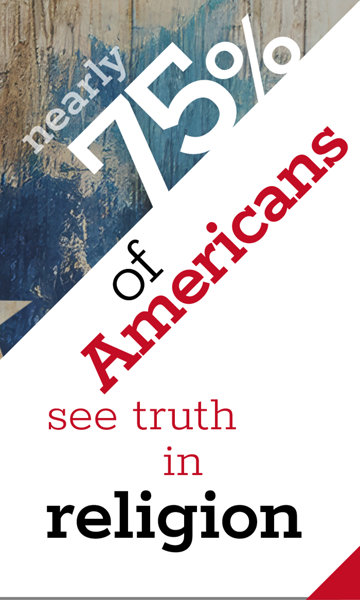It appears that time is beginning to tell.
Recent Pew survey results show that a growing share of Americans believe religion is gaining influence in the United States, marking a sharp rebound from recent years.
The rising percentages cut across all demographics.
A just-released survey found that 31 percent of US adults say religion’s influence is increasing—up from 18 percent a year earlier—representing its highest level in 15 years. The share of adults with a net positive view of religion’s influence surged from 49 percent in September 2022 to 59 percent in February 2025.
After decades of drifting, a stirring of faith is beginning to fill America’s sails. It’s not yet a full gale, but, as Pew observes, “Americans’ views about religion in public life are shifting.”

No ethnic, religious, generational or political group can claim exclusive credit for the changing attitudes toward the influence of faith. The rising percentages cut across all demographics.
Even more telling: Per a May 2025 survey, nearly half of Americans (48 percent) say many religions may be true, while 26 percent believe only one is true. If you do the math, that means that nearly three-quarters of us believe in—or at least acknowledge the possibility—that there is Something grander and greater than ourselves.
That same three-quarters recognizes that, as all religions teach, there is more to life than eating, earning and paying bills. More to strive for than possessions and physical needs. A higher purpose than what your ordinary senses detect is there.
In his essay, “Religious Influence in Society,” Scientology Founder L. Ron Hubbard explained that a culture thrives or perishes depending on the spiritual fulfillment and community its people find through religion.
“Probably the most critical point of attack on a culture is its religious experience,” Mr. Hubbard wrote. “Where one can destroy or undermine religious institutions then the entire fabric of the society can be quickly subverted or brought to ruin.”
If the gradually shifting tectonics of America’s spiritual landscape is any sign, there may be hope for us yet.






















